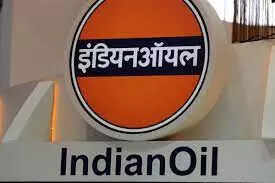
New Delhi: Indian Oil Corp aims to boost natural gas sales threefold and renewable energy capacity to 31 GW by 2030, besides building 5 GWh of lithium-ion battery-making capacity by 2031 as it diversifies its energy offerings.
Indian Oil, the country’s largest oil refiner and retailer, has been working on enhancing its non-oil business for years, with investments in petrochemicals and natural gas. With the global fight against climate change intensifying, the state-run company is adding renewables and batteries to its portfolio.
Indian Oil has a strategic agreement with Japan’s Panasonic Energy to explore opportunities for manufacturing lithium-ion battery cells in India.
“With a vision to propel ‘Make in India’ for the world, the JV plans to establish a one GWh capacity factory by 2027, with an ambitious expansion to 5 GWh by 2031,” chairman Shrikant Madhav Vaidya said in the company’s FY24 annual report. “This collaboration aims to position India as a global hub for advanced battery technology, supporting the nation’s transition to sustainable energy and transportation solutions.”
Indian Oil is also betting on battery swapping facilities and adding electric vehicle charging centres, capitalising on its extensive network of fuel retail outlets.
“We are betting big on the promising pathway of battery swapping solutions, particularly for the two and three-wheeler segment, with plans to expand this avenue for heavy-duty vehicle applications,” Vaidya said. “This approach envisions to be a game changer for the sector.” Indian Oil aims to build renewable energy capacity of 31 GW by 2030, primarily through solar and wind projects, Vaidya said.
The company would, however, continue to expand its primary fossil fuel business as it expects domestic oil demand to grow over the next decade. It is set to add 17 million tonnes per annum (MTPA) capacity, backed by expansions at Barauni (6 to 9 MMTPA), Panipat (15 to 25 MMTPA) and Vadodara (13.7 to 18 MMTPA) refineries.

